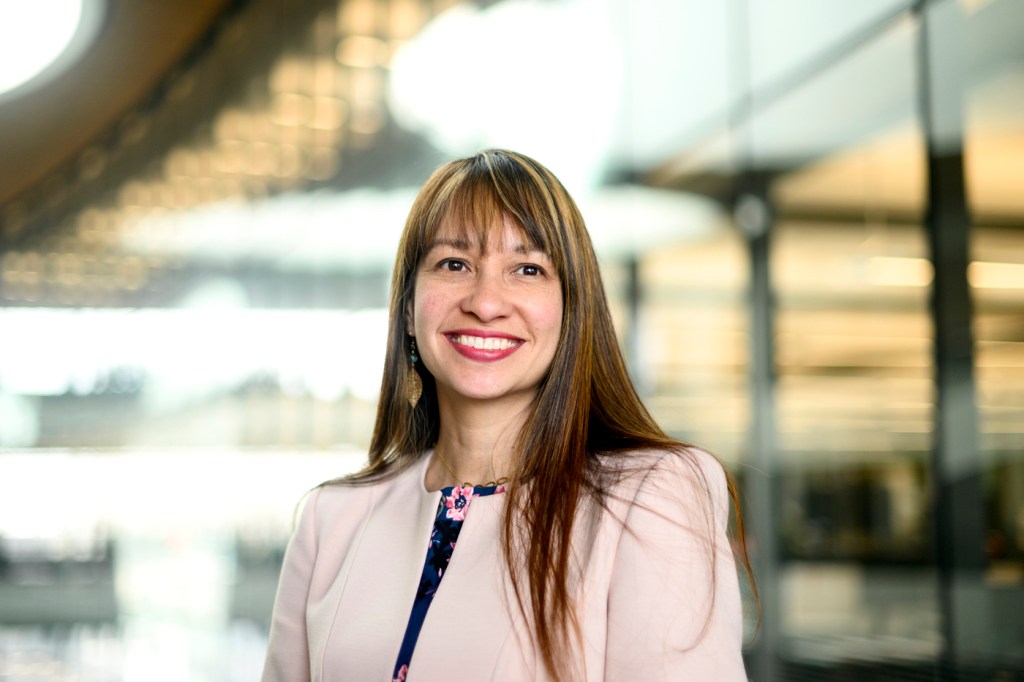Northeastern’s Mai’a Cross receives Carnegie grant to explore political networks and global cooperation
Cross and the Center for International Affairs and World Cultures will research and produce 8-10 case studies that illustrate transnational political networks at work in the world.

Mai’a Cross, dean’s professor of political science, international affairs and diplomacy, is at the forefront of international relations, space diplomacy and European security. She’s a lifetime member of the Council on Foreign Relations, and recently wrote a book that provides a fresh perspective on the prospects of international cooperation during these unstable times.
Now, Cross, as well as the Northeastern University center that she directs, is receiving a grant from Carnegie Corporation of New York to break new ground on “transnational political networks,” which are “groups of individuals who transcend national boundaries” and exert influence over the global order.
Cross and the Center for International Affairs and World Cultures will research and produce 8-10 case studies that illustrate transnational political networks at work in the world.
The grant will also support “four international workshops of scholars and practitioners, and actionable white papers on specific issues that transnational political networks are trying to solve.”
“At both the societal and elite levels, certain networks have social power, derived from the legitimacy of their ideas, which are often ultrasocial in nature (i.e. inclusive, empathic, and aimed at the common good), global, and transformational,” the Northeastern proposal reads.
Editor’s Picks
“This project mainly targets questions about the forces shaping the future global order, but it also tackles this broader challenge of polarization in the international system,” Cross says. “For some time, I’ve tried to examine the forces essentially pushing back against polarization in my own work.”
That notion — how people can, despite their differences, “unite around a common cause and spark breakthroughs in international cooperation” — was the subject of “International Cooperation Against All Odds: The Ultrasocial World,” published in November 2023.
The grant project is “future-looking,” Cross says: “It’s about what’s happening over the next ten years. So, what are the various processes that seem to matter and may actually have an impact on where we’ll be as a global society in 10 years?”
As director of the center, Cross will oversee the grant. “The center will be the home for this new research and this new policy development,” she says.
A portion of the funding is intended to support Cross’ own research, building on themes and topics of “ultrasociality.”
“The funding enables me to build on that and go far beyond it by bringing in other scholars and practitioners, who are working in other policy areas where there is potential for breakthroughs in international cooperation — for transformation of the international system that will lead to more global stability,” Cross says.
As a Native Hawaiian, Cross is looking to spotlight, as her case study, the Hōkūleʻa, a “Polynesian Voyaging Society” whose stated aim is to inspire “10 million voyagers” all over the world to become involved in understanding the ocean, with the goal of “sparking breakthroughs in protecting the ocean.”
“I’ll be researching this case as an example, and it struck me as really interesting because there are parallels to outer space exploration,” she says.
Cross says that she plans to issue a call for submissions from scholars whose work would fit the bill, and that she’ll be looking to select cases on groups whose work is “really outside of the box,” or who haven’t been spotlighted in the literature.
“The idea is to convene scholars as well as those who are actually in transnational political networks themselves — practitioners, policymakers from different types of sectors around the world, including the global south and indigenous communities as well,” she says, “then discuss the pathways by which we can achieve results.”
“I wrote the grant proposal on my own with feedback from Carnegie Corporation, and am grateful for the support of the fantastic research administration team here at the College of Social Sciences and Humanities,” Cross says.











